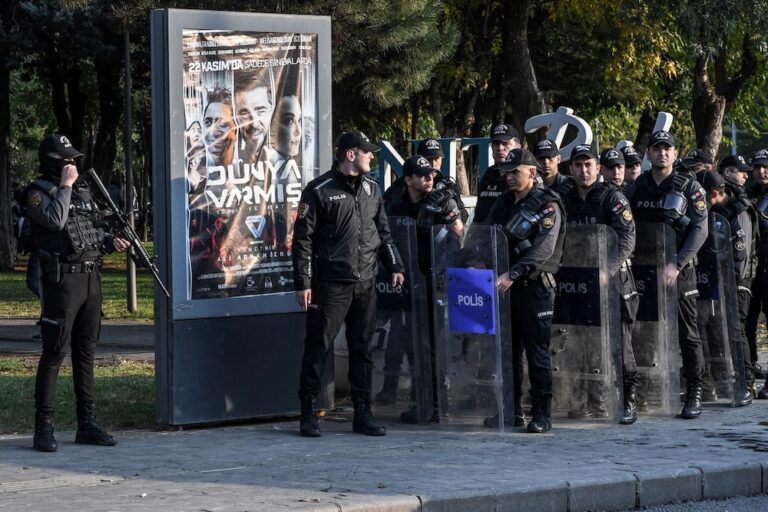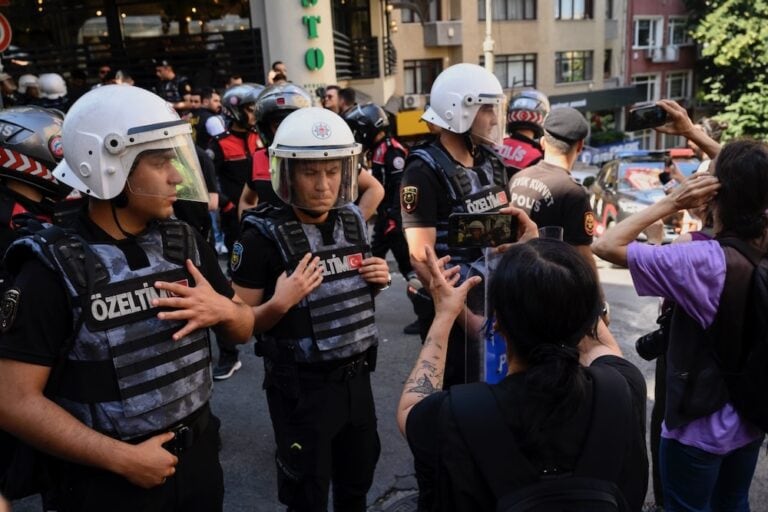Ismail Besikci and Zeycan Balci Simsek are facing time in prison after publishing an article that included a word using the Kurdish spelling with a "q" rather than the Turkish version with a "k".
(BIANET/IFEX) – Sociologist Ismail Besikci and lawyer Zeycan Balci Simsek appeared before the Istanbul 11th High Criminal Court for the second time on 12 November 2010. Both defendants stand accused of “spreading propaganda for the PKK”, the outlawed armed Kurdistan Workers Party (PKK).
Simsek is the editorial manager for “Contemporary Law and Society” magazine, the publication of the Contemporary Lawyers Association (CHD) Istanbul Branch.
Besikci wrote an article for the magazine entitled “The right of nations to self determination and the Kurds”. At the 12 November hearing, the prosecutor alleged that Besikci wrote the word “Qandil” with a “q” instead of a “k”. Qandil Mountain is the location of the PKK’s base in northern Iraq. The Kurdish alphabet includes the letter “q”, but it does not exist in the Turkish alphabet. The prosecutor alleged that there was an “element of crime” in the writing of the word “Qandil” with a “q” in Turkish.
In his defence, Besikci stated that the government was taking steps towards the Kurdish initiative at the time he wrote the article. “The writing is not propaganda, but rather contains legitimate scientific terms,” he said.
Both of the defendants, who are not being held in detention, face up to seven and a half years in jail. Simsek claimed in his defence that “the article we asked for from our teacher (Besikci) for our issue, which happened to be published during the time of discussion of the Kurdish initiative, is a sociological and scientific article.”
Defence lawyer Taylan Tanay commented on the prosecutor’s approach, saying, “Does he write New York with a “v” (“w” is not part of the Turkish alphabet either)? So you should seize all keyboards with the letter “q”. The word ‘Kurdish’ is written with a small ‘k’ in the prosecutor’s final plea. I hope this is a revision mistake. You cannot disparage the Kurdish language by writing it with a small ‘k’. Regardless of what the prosecutor wants or whether the honoured court will decide for punishment, this language has been spoken for a thousand years.”
Joint attorney Levent Kanat indicated, “Even though a Kurdish television channel is broadcasting in Turkey, the letter “q” is being assessed as an element of crime.”
Both defendants were represented by more than 50 lawyers, including Fethiye Cetin, the lawyer for the family of slain Turkish-Armenian journalist Hrant Dink, and Kemal Aytac, the lawyer for the Armenian “Agos” newspaper, which Dink founded and for which he was editor-in-chief. The hearing was monitored by Peace and Democracy Party Deputy Ufuk Uras, author and interpreter Muhsin Kizilkaya, writer Temel Demirer, director Cagan Demirel, the Freedom for Journalists Platform, Ahmet Abakay, president of the Contemporary Journalists Association (CGD) and Ferai Tinc, of the International Press Institute. Upon the lawyers’ request for additional time, the case was postponed to 4 March 2011.
Members of the Ankara Initiative for Freedom of Thought posted a banner in front of the courthouse reading “Ismail Besikci is our conscience. We will not allow our conscience to be silenced.”
The trial was opened on 11 May 2010. In the article in question, Besikci stated, “The Kurds pay the price for a 200-year struggle for freedom and for a free fatherland. (. . .) Syria, Iran and Turkey govern the Kurds with oppression and cruelty. (. . .) The resistance against this oppression and cruelty appears to be a legitimate right.”


